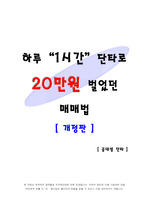음악적성 및 음악흥미와 정서지능과의 관련성 연구 : 중고생을 중심으로
* 본 문서는 배포용으로 복사 및 편집이 불가합니다.
서지정보
ㆍ발행기관 : 한국음악치료학회
ㆍ수록지정보 : 한국음악치료학회지 / 3권 / 1호
ㆍ저자명 : 김향숙
ㆍ저자명 : 김향숙
목차
대상결과
논의
참고문헌
영문초록
한국어 초록
본 연구의 목적은 중고등학생의 음악적성과 음악흥미가 정서지능과 어떠한 관련성을 가지는지를 분석하고, 정서지능에 영향을 주는 개인의 음악적 특성 변인이 무엇인지를 밝히려는 것이다. 연구대상은 중학교, 고등학교 학생으로 총 460명이었으며, 측정도구로는 음악적성의 측정을 위해 Gordon(1989)이 제작한 AMMA(Advanced Measures of Music Audiation)를 사용하였으며, 음악흥미검사는 배성애(2000)의 '음악흥미 검사'와 Shaw와 Tomcala(1976)가 제작한 '음악에 대한 태도' 척도를 기초로 연구자가 재구성하여 사용하였다. 또한 정서지능의 측정은 서울대 교육 연구소와 대교 교육 과학연구소가 공동으로 개발한 중학생용 '정서지능검사'(1997)를 사용하였다. 검사는 2000년 11월 6일부터 8일까지 3일간 시행되었으며, 검사항목에 불성실한 응답자를 제외한 441명의 검사 결과를 최종 분석하였다. 본 연구를 통해 얻은 결과는 다음과 같다. 첫째, 음악적성과 정서지능은(r=.096, p<.05) 미미한 정적 상관관계를 나타냈으며, 음악적성 상위그룹은 하위그룹보다 정서지능 총점과 모든 하위 구성 요소에서 점수가 높았으며, 그 중, 정서지능 총점과 하위 구성 요소인 정서조절에서 유의미한(p<.05) 차이를 나타내었다. 둘째, 음악흥미와 정서지능의 상관은 음악적성보다 높은 상관관계(r=.418, p<.001)를 나타났다. 또한, 음악흥미 상위그룹은 하위그룹보다 정서지능 총점과 모든 하위 요소의 점수가 높게 나타났으며, 두 그룹의 차이가 정서지능 총점(p<.001)과 감정이입, 정서조절, 정서활용(p<.001), 정서인식(p<.05)에서 유의미한 것으로 나타났다. 셋째로, 각 변인별 음악적성, 음악흥미, 정서지능의 차이를 알아본 결과, 성별에 따라 음악적성, 음악흥미에서 차이가 나타났고(p<.001), 학교급별 차이는 음악적성(p<.001)에서 나타났다. 음악 레슨 기간별 차이는 음악적성, 음악흥미, 정서지능에서 모두 통계적으로 유의미한 차이를 나타내었고, 가족 중 음악 전공자 유무에 따른 차이가 정서지능에서 나타났다(p<.01). 이상의 결과로, 음악흥미는 음악적성보다 정서지능과 높은 상관관계를 가지며, 음악적성, 음악흥미, 음악 레슨 기간, 가족 중 전공자 유무 등의 음악적 변인에 따른 집단이 정서지능에 차이를 보이는 것으로 나타났다. 본 연구의 결과는 감수성이 예민하고 음악적 영향을 많이 받는 청소년기에는 음악에 대한 고정적 잠재력보다는 감성적 태도인 음악에 대한 흥미가 정서지능에 더 크게 영향을 미친다는 해석을 가능하게 한다. 또한 정서지능 향상을 목적으로 한 음악프로그램 개발의 필요성과 그 효과에 대한 가능성을 제시하였다.영어 초록
This research is concerned with assessing correlations between musical aptitude and musical interest and emotional intelligence. It also describes variables in personal musical characteristics, which affect emotional intelligence.A total of 460 middle and high school students were the subjects of investigation. A measuring tool, Advanced Measures of Music Audiation (AMMA), developed by Gordon (1989) were used to measure musical aptitude and a Music Interest Survey, produced by Bae, Sung-Ae (2000) and a Music Attitude Scale, produced by Shaw and Tomcala (1976) were adapted and utilized. Emotional intelligence also was measured by ‘The Scale of Emotional Intelligence’ for middle school students, which was jointly developed by the Educational Research Institute, Seoul National University and the Research Institute of Educational Science, Daekyo. The measurements were carried out for three days from November 6 to November 8, 2000, and the analysis was based on survey results for 441 people excluding the people who did not fully respond.
The investigation obtained the following results.
Firstly, there exists a slightly positive correlation between music aptitude and emotional intelligence (r=.096, p<.05). The high-level group in musical aptitude gained better marks in the total score of emotional intelligence and in all sub-elements of emotional intelligence than the low-level group. This represented a significant difference in the total score of emotional intelligence and in emotional regulation (p<.05).
Secondly, the correlation between musical interest and emotional intelligence (r=.418, p<.001) proved to be higher than that between musical aptitude and emotional intelligence. The high-level in music interest group gained better marks in all sub-elements of emotional intelligence than the low-level group. This result represented a significant difference in the total scores in emotional intelligence (p<.001), empathy (p<.001), emotional regulation(p<.001), emotional utilizing (p<.001) and emotional appraisal (p<.05).
Thirdly, there existed a significant difference in musical aptitude and musical interest according to sex (p<.001), and significant differences in musical aptitude according to age (p<.001). A significant difference was also discovered in musical aptitude, musical interest and emotional intelligence according to exposure to music lessons. Emotional intelligence varied according to whether or not there was any family member who majored in music (p<.01).
The results of this research indicate that music interest has a higher correlation than musical aptitude to emotional intelligence, and that emotional intelligence is influenced by musical aptitude, musical interest, and by lessons. Family members who have majored in music are also a significant factor. This means that, in adolescence when people have a finer sensibility and are more affected by music, musical interest as an emotional attitude exerts a bigger influence on emotional intelligence than a fixed musical aptitude. In conclusion, this study suggests the necessity to develop music programs to improve emotional intelligence.

























